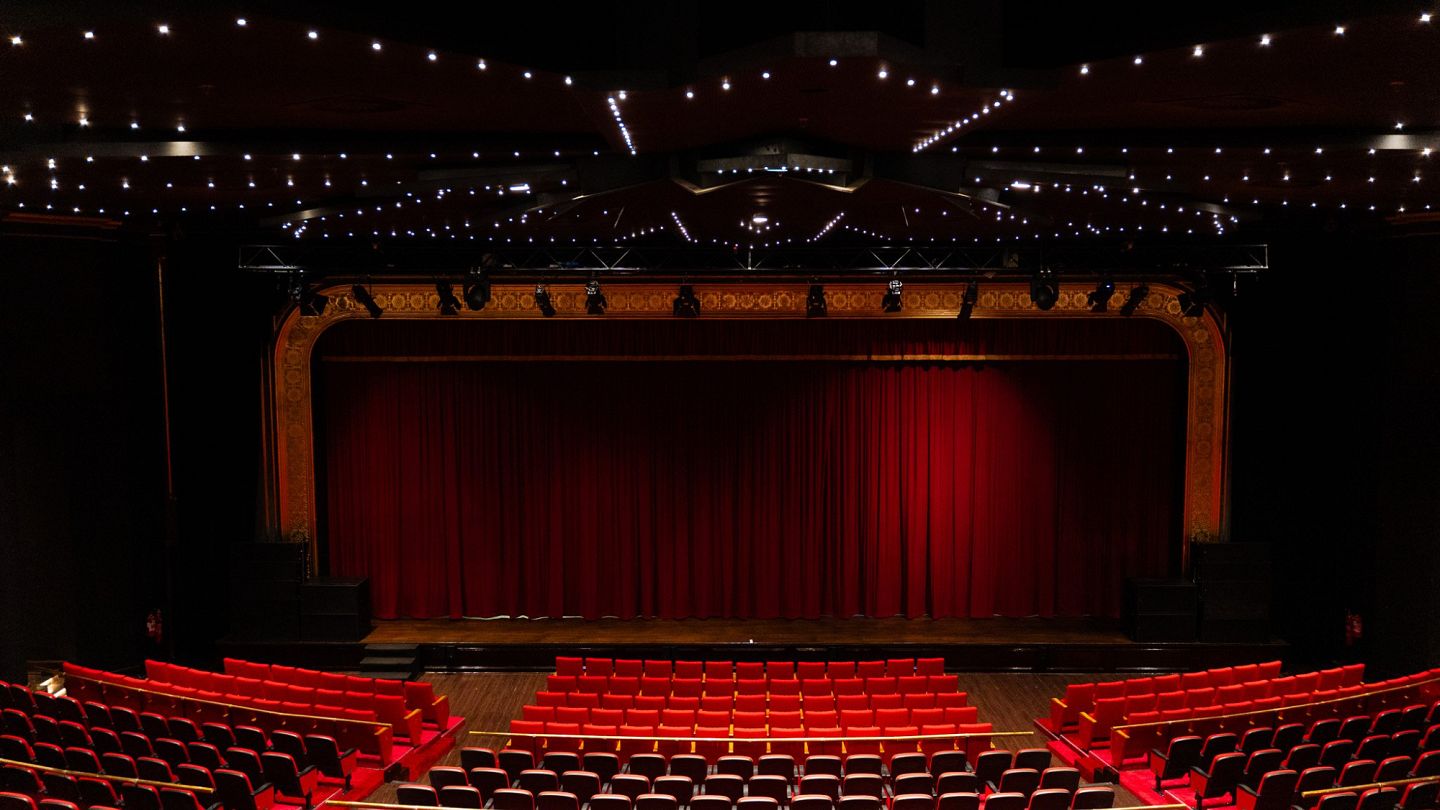5 things you need to know about the Classic Violin Olympus International Competition
Ahead of the finals for the Classic Violin Olympus International Competition in Dubai, here’s everything you need to know about one of the most prestigious and competitive musical competitions this year.
12 of the world’s finest violinists will battle it out to be crowned the winner of the Classic Violin Olympus International Competition later this month. Set to take place from 22 to 28 April 2025 at the Jumeirah Zabeel Saray hotel in Dubai, Euronews will also feature the competition through a Cult Programme. PICTURE: Jumeirah Zabeel Saray hotel in Dubai where the competition will take place. Here’s five key things you need to know about the competition:1. How do you find the top 12 violinists?All 12 finalists have been chosen through a rigorous process. Applicants from across the globe have been whittled down through a gruelling six-stage pre-selection process. Preliminary stages took place in Tokyo, Vienna, New York, London, Rome, and Dubai, with juries judging applicants from any age or nationality. From this process, each five-member jury picked out the top two competitors. Of those set to perform in Dubai later this month, three competitors are from China: Jinzhu Li, Ruifeng Lin, and Xiao Wang. Two American competitors, Karisa Chiu and Elli Choi, are taking part. The rest are individually representing their respective nations: Andrey Baranov (Switzerland), Boris Brovtsyn (Austria), Yuki Hirano (Japan), Lorenz Karls (Sweden/Austria), Haik Kazazyan (Armenia), Mariusz Patyra (Poland), and Soyoung Yoon (South Korea).2. What’s at stake?It’s already been a financially lucrative journey for the 12 finalists. Each two top competitors in the preliminary stages were awarded a prize fund of €35,000 for their initial achievement. Now, those finalists are up for the Classic Violin Olympus’ final. First prize is a whopping €200,000 with the 11 runner ups taking home a not-insignificant €10,000. In total, this makes the prize fund for this year’s competitions an incredible €310,000. The winner will also receive a Stradivari violin crafted by Fabio Piagentini. While the money is impressive, the prestige of competing in the competition is the true goal for the violinists. Performing in front of a jury of world-class musicians and potential mentors makes this key opportunity for the young artists.3. What will they perform?Each violinist will perform a six-part programme that has been designed to test every corner of the violinist’s abilities. For these rounds, the violinists will perform on stage with accompaniment from an impressive line-up of musicians, including the Madrid Philharmonic Orchestra and Armenian State Symphony Orchestra. Their first test will be a performance alongside a symphonic orchestra. This challenge is split into two parts. First they must perform from one of five famous violin concertos to perform with the orchestra: Beethoven’s Op. 61, Brahms’s Op. 77, Tchaikovsky’s Op. 35, Sibelius’s Op. 47, or Shostakovich’s No. 1 Op. 77.For the second part of the challenge, they must then act as concertmaster and lead the orchestra in a performance of one of the following: Strauss’s ‘Ein Heldenleben’; Bach’s ‘Erbarme Dich’; Beethoven’s ‘Missa Solemnis’; Strauss’ ‘Auftritt und Tanz der Schneider’; or Tchaikovsky’s ‘Swan lake’.After this, they will move onto the second part of their trial. This is separated into four sections. First, they must interpret Beethoven’s Triple Concerto for Violin, Cello and Piano with Orchestra, performing alongside globally-celebrated soloists: Alexander Chausian on the cello or Itamar Golan on the piano. Then, they are able to choose between three concertos from the competition’s composer-in-residence, Alexey Shor. Finally, they are given the opportunity to do a solo performance encore of their choice before giving a Q&A discussion with the jury panel.4. How will it be judged?Deciding the fate of the 12 finalists is a 25-strong jury. All have been hand-picked for their excellent pedigree as some of the world’s foremost conductors, all having led acclaimed orchestras, festivals and concerts. Leading the jury is Pavel Vernikov. Artistic Director of the competition, the Ukrainian violinist is a winner of the Munich International Competition and one of the most-respected classical musicians of the past 20 years. Speaking to Euronews, he said of the judging process: “This is not a sporting competition. What we are looking for is someone who can convince the audience and the jury that they are a musician. We are not choosing athletes, but real artists, and this programme will allow us to see how versatile they are, and whether they have anything to say with their music.”5. Why is this such an important competition?Classic Violin Olympus was founded seven years ago by Konstantin Ishkhanov as ‘Classic Strings’, aiming to discover the most talented young musicians of our time. From the inaugural edition in Riga in 2018, they have led the competition industry through their groundbreaking prize funds and dedication to musical artistry. As with Riga’s total prize fund of €40,000 growing to this year’s €310,000, the event has also grown in the classical world’s estimation, with increasing numbers of young musicians vying for a place in the finals. Thanks to a move in 2022 to the Middle East, the Classic Violin Olympus has become recognised as one of the most important dates on the classical music calendar, attracting world-class juries and the greatest talents of tomorrow.


